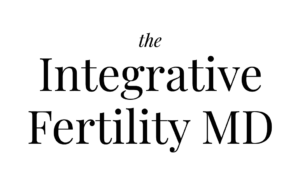“How do our ages affect our chances of conception?” This is one of the top questions that patients ask each day in fertility clinics around the world, and it is becoming more and more relevant. More individuals than ever are choosing to delay their attempts to conceive due to educational choices, career opportunities, or personal decisions. (In the United States, the average first time mother gives birth around five years later than she would have in 1972.)
Fortunately, there is fairly clear data to answer this question! A woman’s age is one of the most reliable factors in predicting natural conception and her success with various fertility treatments. The quality of a woman’s eggs as she ages is the main concern.
How does aging affect a woman’s eggs?
Many people are surprised to learn that a woman’s body doesn’t continue creating eggs throughout her lifetime. Female infants are born with all the eggs they will ever have. (This number is usually around one million eggs!) This number declines to about 300,000 by the time she begins menstruating. Eggs continue to decline in both quantity and quality throughout a woman’s lifetime until she reaches menopause. This decline unfortunately means that the rate of fertility declines with age as well.
This decline in egg count and egg quality continues regardless of whether or not a woman is ovulating regularly or at all. Women who don’t menstruate regularly due to hormonal birth control, reproductive hormonal imbalances, pregnancies, or lactation still see a steady decline in their egg quality and number of remaining eggs. Modern medicine hasn’t yet found a way to slow this process.
Now, this decline in fertility can be very different from female to female. (Average age at menopause is 51, but this can be affected by a broad range of factors including hormonal contraceptive use, smoking history, childbearing, and physical activity level.) This fertility decrease generally coincides with the timing of a woman’s menopause, so women who enter menopause earlier will likely see their egg counts decreasing earlier as well.
Why do eggs decline in quality with age?
After being released from the ovary, eggs divide their genetic material. When a mistake happens during this division process, the egg will contain an abnormal number of chromosomes, which can lead to congenital anomalies, high risk pregnancies, and pregnancy loss. This division of genetic material becomes more difficult with age, and it becomes more likely that these chromosomal abnormalities will occur.
While a woman attempting to conceive in her twenties may have a one-in-four chance of conceiving in any given month, someone who is over forty has around a 3 percent chance of natural conception during each menstrual cycle. Sadly, pregnancy loss is also much more common as maternal age increases.
What about male partners?
Is sperm quality affected by age as much as egg quality? While age does impact male fertility, the impact does not seem to be quite as large, and the correlations are not as clear. Male aging is associated with some decline in level of sexual health, but it is important to keep in mind that these correlations don’t necessarily mean that age is their cause.
As a man’s age advances beyond about 40, he can see an increased risk of genetic damage to the sperm. This can lead to chromosomal abnormalities in his offspring, such as Down syndrome or XYY syndrome. Sperm morphology (size and shape) and motility (ability to swim) decrease as age progresses. Older men are more likely to produce offspring with autism and schizophrenia, and the partners of these men more commonly experience miscarriage and pregnancy complications such as preeclampsia. These female partners are also more likely to require a cesarean birth due to higher risk pregnancies.
Sexual dysfunction can also lead to fertility concerns, as issues like erectile dysfunction and reduced libido may affect his ability or desire for intercourse, further reducing the chance of conception with his partner.
There is hope!
The information above might seem a bit overwhelming, but our intent at The Integrative Fertility M.D. is to arm you with the data you need to make informed decisions about your care. Due to the potential concerns mentioned here, we recommend seeking help in conceiving after six months of unprotected sex if you are over the age of 35, right away if you are over age 40, or whenever you have any concern about your age.
Dr. Salem has personally worked with hundreds of couples where one or both partners were in their forties who have gone on to have successful pregnancies and healthy births. Our unique combination of traditional medicine and natural lifestyle modifications can help optimize your fertility regardless of your age.
Do you have more questions about your age and fertility? Connect with us to consult with Dr. Salem about how to maximize your chances of conceiving regardless of your age. We look forward to hearing from you!



